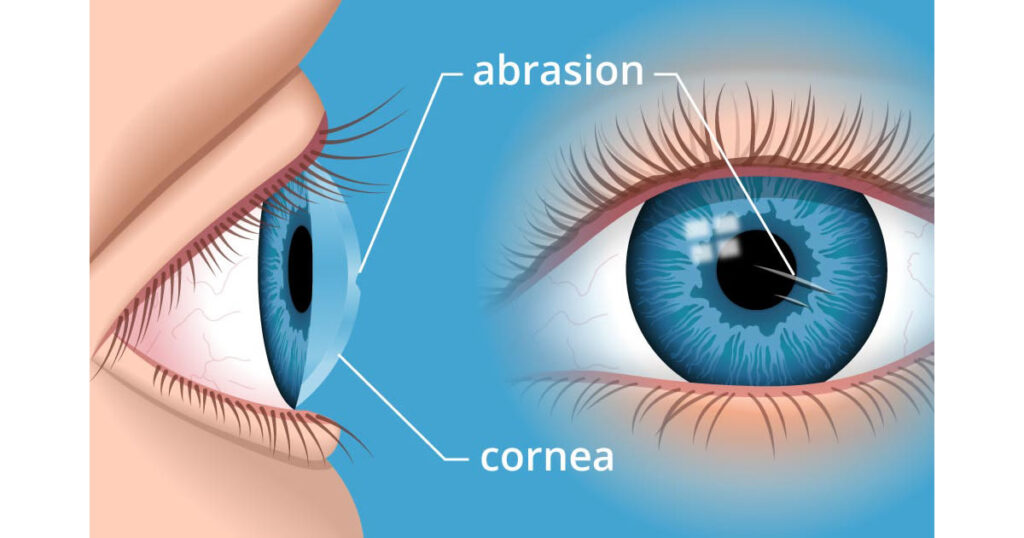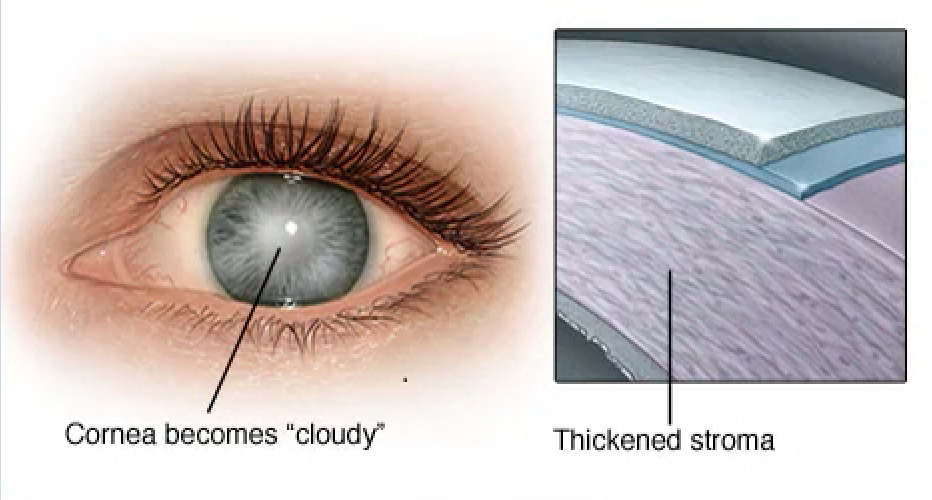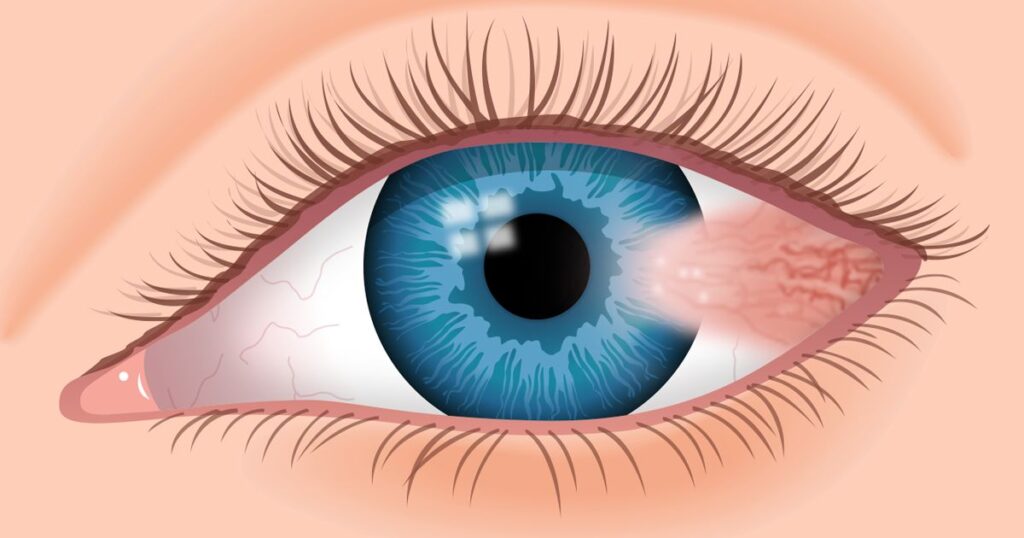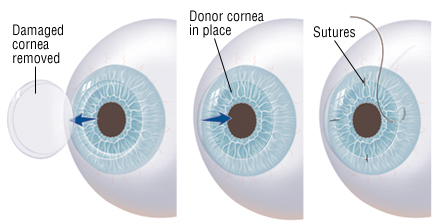Our Cornea Specialists are performing the most advanced cornea transplants and surgery available today. We specialize in treating Fuchs Endothelial Corneal Dystrophy, corneal swelling, complications after cataract surgery, Band Keratopathy, Corneal Infections, Keratoconus, Contact Lens Related Complications, and many other conditions of the cornea and anterior segment.

Corneal Abrasions and Erosion
An injury to the epithelium, or the outermost layer of the cornea. Common symptoms include the feeling of having something in your eye, pain, redness, sensitivity to light, and tearing.
We are able to treat these symptoms with eyedrops or ointment, as well as a special contact lens that reduces pain and encourages healing.

Fuchs’ Dystrophy
We treat these symptoms with eyedrops or ointment, and in extreme cases, cornea transplant.

Pterygium and Pinguecula
Symptoms include redness and inflammation, blurred vision, dryness, itching, burning, gritty feeling or feeling like something is in your eye.

Cornea Transplant
In extreme cases, we may decide that a transplant is the best option. Using the most advanced techniques we are able to replace cloudy, scarred, and damaged corneas with crystal-clear new corneas.
There are different kinds of cornea transplants that your surgeon will decide on which procedure is best for your diagnosis.
Full thickness corneal transplant, or Penetrating Keratoplastry (PK). This is when your entire cornea needs to be replaces. The damaged cornea is removed, and then a clear donor cornea is sewn into place.
Patrial thickness corneal transplant, or Deep Anterior Lamellar Keratoplasty (DALK). This is when just the front and middle layers of the cornea are damaged. This is commonly used to treat keratoconus or bulging of the cornea.
Endothelial Keratoplasty can be treated with two types of surgery. Descemet’s Stripping Endothelial Keratoplasty (DSEK) and Descemet’s Membrane Endothelial Keratoplasty.
These surgeries remove damaged cells from the inner layer of the cornea. A small incision is made and the damaged layer is removed. Then the new tissue is put in place.
